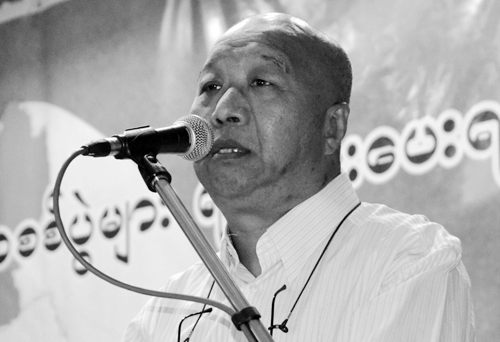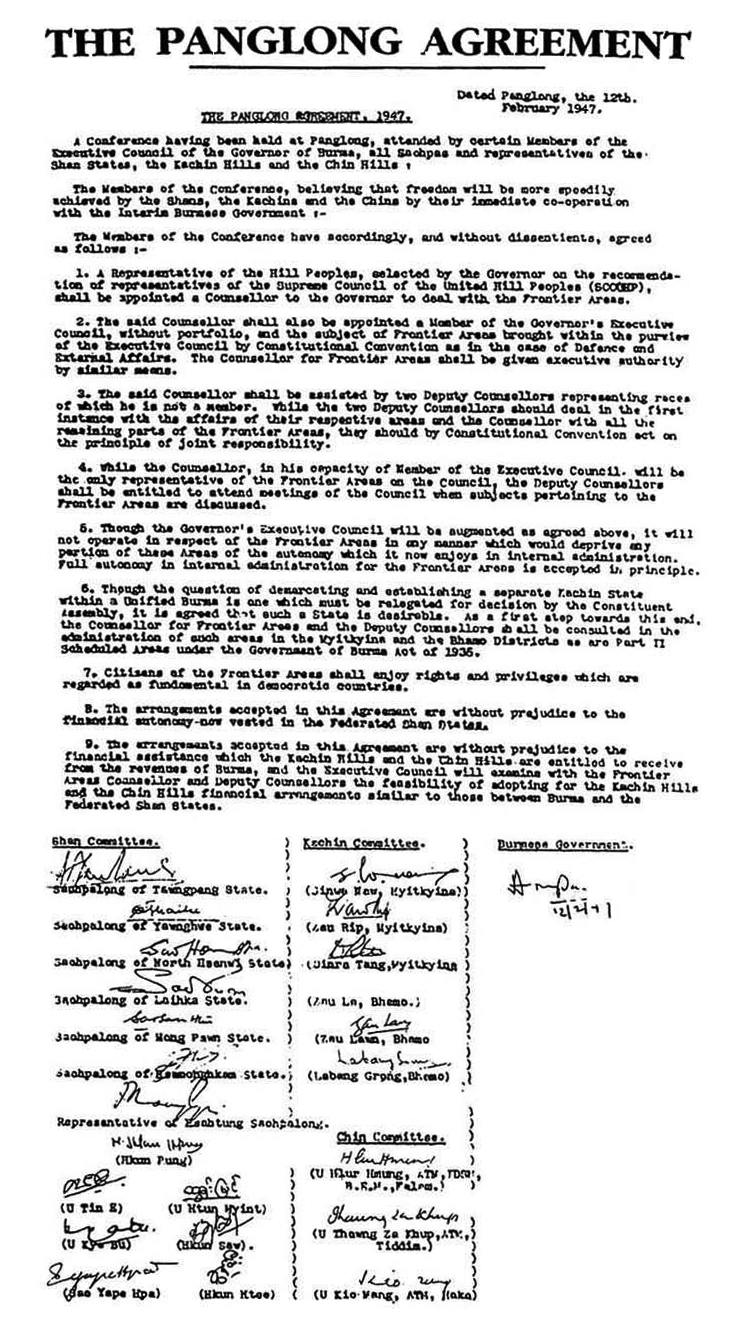Speaking at a recent meeting at his Loi Taileng base, opposite Maehongson’s Pang Mapha district, Lt-Gen Yawdserk, President of the Restoration Council of Shan State (RCSS), the political arm of the Shan State Army (SSA) ‘South’, said he was not interested in the planned “Panglong II”, but only in the terms of the (1947) “Panglong I”.
“We will keep on adhering to the 1947 Panglong Agreement, in spite of the fact that we had suffered some losses (of sovereignty) because of it. Maybe Panglong II will even make us a poorer loser.”
It is the belief of several Shan politicians that the Shan State, then known as Federated Shan States, could have become independent like the Federated Malay States, better known now as Malaysia, had it chosen to go alone in 1947.
The Panglong Agreement, or as renamed by some as “Panglong I”, signed on 12 February 1947, had promised Chin, Kachin and Shan:
Executive authority over frontier areas
Full autonomy in internal administration
Rights and privileges which are regarded as fundamental in democratic countries
Financial autonomy of each state
Brig Gen Pawng Kherh, Yawdserk’s top peace negotiator, was also skeptical. “It’ll be difficult to accept a Panglong II without first going back to Panglong I,” he said.
Yawdserk and his lieutenants are not alone in being suspicious of Panglong II, although no one knows yet what shape it is going to take.
Salai Kipp Kho Lian, a member of the Supreme Council of the Chin National Front (CNF), another movement that is a signatory to the ceasefire agreement, also told Kumudra Journal last month that newly coined appellations like “21st century Panglong,” “Panglong II” and “Panglong style” were misleading. “Some even talks about a conference surpassing Panglong,” he said. “I don’t believe in it. What I believe is that it is because Panglong is so good other states have also come along.”
He suggested “conference held in the spirit of Panglong” would be a for more suitable word than “Panglong style” and such.

Both the government and the opposition have declared that a union conference, with the aim to reach a Union Accord, will be held not later than 2014. A framework for political dialogue is being drafted by the Working Group for Ethnic Coordination (WGEC), set up by the ethnic armed movements in June 2012.




